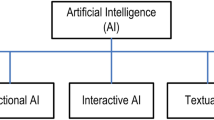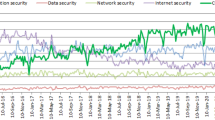Abstract
This literature review article explores how artificial intelligence (AI) is revolutionizing airport security by automating threat analysis and identification processes. These advancements not only enhance security measures but also improve speed and accuracy. The capacity of AI to predict threats by analyzing vast passenger data helps identify potential risks. Balancing these breakthroughs are ethical and privacy concerns, stressing the importance of transparency and privacy protection to gain public trust. While AI systems’ reliability and accuracy are central to balancing security and passenger convenience, the future of airport security depends on the effective integration of AI technologies. Biometrics and other transformative safety measures are discussed, with the suggestion for further research on optimizing real-time authentication systems, studying various AI strategies, and enhancing AI-based intrusion detection systems to prepare for future threats. The article is targeted towards AI, cybersecurity, and airport security professionals and researchers. Policymakers and decision-makers in the aviation and transportation sectors may also find value in understanding the impact of AI on airport security, ethical considerations, and future trends and research directions.
Similar content being viewed by others
Data availability
No datasets were generated or analysed during the current study.
References
Abdelaziz AB, Rahimi MA, Alrabeiah MR, Ibrahim AB, Almaiman AS, Ragheb AM, Alshebeili SA (2023) Photoplethysmography data reduction using truncated singular value decomposition and internet of things computing. Electronics 12(1) Article 1. https://doi.org/10.3390/electronics12010220
Abdelwahed HJ, Hashim AT, Hasan AM (2020) Segmentation approach for a noisy iris images based on hybrid techniques. Eng Technol J 38(11A):1684–1691. https://doi.org/10.30684/etj.v38i11A.450
Alabsi MI, Gill AQ (2021) A review of passenger digital information privacy concerns in smart airports. IEEE Access 9:33769–33781. https://doi.org/10.1109/ACCESS.2021.3061425
Canizares PC, Merayo MG, Núñez A (2018) FORTIFIER: a FORmal disTrIbuted framework to improve the dEtection of thReatening objects in baggage. J Inform Telecommunication 2(1):2–18. https://doi.org/10.1080/24751839.2017.1347766
Chen D, Song Q, Zhang Y, Li L, Yang Z (2023) Identification of network traffic intrusion using decision tree. Journal of Sensors, 2023, e5997304. https://doi.org/10.1155/2023/5997304
Dash B, Ansari MF, Sharma P, Ali A (2022) Threats and opportunities with AI-based cyber security intrusion detection: a review. Int J Softw Eng Appl 13(5):13–21. https://doi.org/10.5121/ijsea.2022.13502
Hagendorff T (2020) The ethics of AI ethics: an evaluation of guidelines. Mind Mach 30(1):99–120. https://doi.org/10.1007/s11023-020-09517-8
Hasan MM, Islam MU, Uddin J (2023) Advanced persistent threat identification with boosting and explainable AI. SN Comput Sci 4(3):271. https://doi.org/10.1007/s42979-023-01744-x
Huriye AZ (2023) The ethics of artificial intelligence: examining the ethical considerations surrounding the development and use of AI. Am J Technol 2(1). https://doi.org/10.58425/ajt.v2i1.142
Jupe LM, Keatley DA (2020) Airport artificial intelligence can detect deception: or am I lying? Secur J 33(4):622–635. https://doi.org/10.1057/s41284-019-00204-7
Kolte S, Bhowmik N, Dhiraj (2022) Threat object-based anomaly detection in X-ray images using GAN-based ensembles. Neural Comput Appl. https://doi.org/10.1007/s00521-022-08029-z
Lainjo B, Tsmouche H (2023) The impact of artificial intelligence on higher learning institutions. Int J Educ Teach Social Sci 3(2) Article 2. https://doi.org/10.47747/ijets.v3i2.1028
Liang KJ, Heilmann G, Gregory C, Diallo SO, Carlson D, Spell GP, Sigman JB, Roe K, Carin L (2018) Automatic threat recognition of prohibited items at aviation checkpoint with x-ray imaging: A deep learning approach. Anomaly Detection and Imaging with X-Rays (ADIX) III, 10632, 1063203. https://doi.org/10.1117/12.2309484
Maksymiuk Y, Chulinda L, Korchova H, Pochka K (2022) Priority directions of international airport infrastructure development. Strength Mater Theory Struct 109., Article 109. https://doi.org/10.32347/2410-2547.2022.109.301-316
McKay S, Hartnett GS, Held B (2022) Airline security through Artificial Intelligence: how the transportation security administration can use machine learning to improve the electronic baggage screening program. RAND Corporation. https://doi.org/10.7249/PEA731-1
Osamy W, Khedr AM, Salim A, El-Sawy AA, Alreshoodi M, Alsukayti I (2022) Recent advances and future prospects of using AI solutions for security, fault tolerance, and QoS challenges in WSNs. Electronics 11(24) Article 24. https://doi.org/10.3390/electronics11244122
Palko D, Babenko T, Bigdan A, Kiktev N, Hutsol T, Kuboń M, Hnatiienko H, Tabor S, Gorbovy O, Borusiewicz A (2023) Cyber security risk modeling in distributed information systems. Appl Sci 13(4) Article 4. https://doi.org/10.3390/app13042393
Patel V (2018) Airport passenger processing technology: A biometric airport journey. https://commons.erau.edu/edt/385
Petrescu RV (2019) Face recognition as a biometric application (SSRN Scholarly Paper No. 3417325). https://doi.org/10.2139/ssrn.3417325
Petrozziello A, Jordanov I (2019) Automated deep learning for threat detection in luggage from X-Ray images. In I. Kotsireas, P. Pardalos, K. E. Parsopoulos, D. Souravlias, & A. Tsokas (Eds.), Analysis of Experimental Algorithms (pp. 505–512). Springer International Publishing. https://doi.org/10.1007/978-3-030-34029-2_32
Pratiwi IDA, Prayudhista E (2023) Implementation of Safety Management System (SMS) for heliport operational personnel at PT. Whitesky Aviation. AURELIA: Jurnal Penelitian Dan Pengabdian Masyarakat Indonesia 2(1). https://doi.org/10.57235/aurelia.v2i1.271
Prihodova K, Hub M (2020) Hand-based biometric system using convolutional neural networks. Acta Informatica Pragensia 9(1):48–57. https://doi.org/10.18267/j.aip.131
Raja MF, Sutarwati S (2023) Reconciliation analysis of passengers suspected of carrying dangerous and prohibited goods at Komodo Labuan Bajo airport security checkpoint. QISTINA: Jurnal Multidisiplin Indonesia 2(1). https://doi.org/10.57235/qistina.v2i1.495
Sahic A, Cinac D (2022) Application of ICT as a key element for airport safety and security operations. Sci Eng Technol 2(2). https://doi.org/10.54327/set2022/v2.i2.44
Sarkar A, Abbott AL, Doerzaph Z (2016) Biometric authentication using photoplethysmography signals. 2016 IEEE 8th International Conference on Biometrics Theory, Applications and Systems (BTAS), 1–7. https://doi.org/10.1109/BTAS.2016.7791193
Wang Q, Bhowmik N, Breckon TP (2020a) Multi-class 3D object detection within volumetric 3D computed tomography baggage security screening imagery. 2020 19th IEEE International Conference on Machine Learning and Applications (ICMLA), 13–18. https://doi.org/10.1109/ICMLA51294.2020.00012
Wang Q, Bhowmik N, Breckon TP (2020b) On the evaluation of prohibited item classification and detection in volumetric 3D computed tomography baggage security screening imagery. 2020 International Joint Conference on Neural Networks (IJCNN), 1–8. https://doi.org/10.1109/IJCNN48605.2020.9207389
Wei W, Cheng W (2022) Design of air passenger travel choice intention prediction system based on deep learning. Sci Program 2022:e7340552. https://doi.org/10.1155/2022/7340552
Yan W-J, Wu Q, Liang J, Chen Y-H, Fu X (2013) How fast are the leaked facial expressions: the duration of micro-expressions. J Nonverbal Behav 37(4):217–230. https://doi.org/10.1007/s10919-013-0159-8
Zhao Z, Zhang C, Guo D (2020) Analysis of risk-based airport passenger classification with PSO-BP neural network. 2020 39th Chin Control Conf (CCC) 7344–7349. https://doi.org/10.23919/CCC50068.2020.9188750
Acknowledgements
The author would like to thank the Embry-Riddle Aeronautical University Worldwide Campus - Virtual Environment for Communication: Teaching, Outreach, and Research (VECTOR) and the College of Arts and Sciences (COMPASS) Research Mentoring Program for their support.
Funding
The author received no financial support for the research, authorship, and/or publication of this article.
Author information
Authors and Affiliations
Contributions
E.P. is the sole author of this article.
Corresponding author
Ethics declarations
Ethical approval
Not applicable.
Competing interests
The authors have no relevant financial or non-financial interests to disclose.
Additional information
Publisher’s Note
Springer Nature remains neutral with regard to jurisdictional claims in published maps and institutional affiliations.
Rights and permissions
Springer Nature or its licensor (e.g. a society or other partner) holds exclusive rights to this article under a publishing agreement with the author(s) or other rightsholder(s); author self-archiving of the accepted manuscript version of this article is solely governed by the terms of such publishing agreement and applicable law.
About this article
Cite this article
Pik, E. Airport security: the impact of AI on safety, efficiency, and the passenger experience. J Transp Secur 17, 9 (2024). https://doi.org/10.1007/s12198-024-00276-6
Received:
Accepted:
Published:
DOI: https://doi.org/10.1007/s12198-024-00276-6




